Responsible tourism is an active awareness about the effects travel can have on destinations and the people and wildlife who inhabit them, both positive and negative.
The general idea is that when all segments of the tourism industry– tour operators, hotels, government organizations, locals, and travelers themselves– take responsibility for ensuring travel is sustainable, it makes better places for people to live in and better places for people to visit.
Responsible travelers have some cultural awareness about the local people with whom they interact, and seek cultural immersion experiences that benefit them economically.
They consider the impact their journeys have on ecotourism destinations, cautiously choosing their lodging, transportation, and activities in a way that helps to preserve the destination’s natural beauty and wildlife.
Let’s be honest: Taking time to consider our impact on a destination isn’t always convenient when we’re on vacation.
But Responsible Tourism is more authentic, more immersive, and often leads us to more exhilarating adventures. As a bonus, this extra attention to the details of our experience generally produces much more rewarding and memorable trips.
Here’s a look at 15 reasons why Responsible Tourism is, in our opinion, the very best form of travel for all parties involved.
WHY RESPONSIBLE TOURISM IS BETTER
- Mutually Beneficial Cultural Immersion
- Cultivating Cultural Awareness
- Ambassadors of “Otherness”
- Support of/Participation in Volunteer Programs
- Deeper Connections with Local Communities
- Off the Beaten Path Discoveries
- Avoiding Overtourism
- Promotion of Sustainable Tourism
- Environmental Tourism Benefits
- Saving the Environment Helps Everyone
- Truly Transformative Travel
- Connecting With Other Eco Travelers
- Spreading the Word on Conscientious Tourism
- A Network of Responsible Travel
- Investment in Ethical Tourism
READ MORE: Why Responsible Travel Matters (& Greenwashing Sucks)
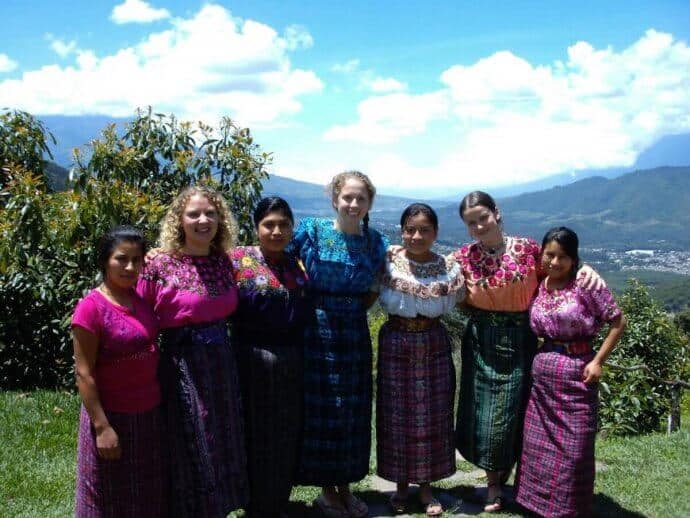
1. Mutually Beneficial Cultural Immersion
As travelers have become increasingly worldly and self-aware, more and more we hope to discover something beyond ourselves and our own traditions when we travel.
“Experiencing a different culture” often ranks high on people’s list of reasons for traveling internationally, and cultural immersion tours are becoming much more popular.
But cultural travel should be more than just a tourism-based spectacle. A Disney-style performance of traditional cultural practices merely cheapens the experience for both sides.
Instead, we should strive to find authentic representations of culture, even if they aren’t as bedazzled with lights and electronic music. I’m thinking of a “whirling dervish” dance I once witnessed on a small ship cruise in Egypt vs. an actual ceremony I saw on the rooftop of a restaurant in Istanbul.
Just as we’re proud of the things that make us uniquely who we are, so are the people in other countries. We should honor that, which means giving them a chance to share meaningful versions of themselves and their history. Plus, we emerge actually knowing more about local culture!
READ MORE: 50 Fascinating Facts About Indian Culture

2. Cultivating Cultural Awareness
Mutually beneficial cultural immersion generally leads to fostering cultural awareness.
Historically, we have identified other cultures largely by using outdated stereotypes and distant tropes of who people are. That only serves to creates misunderstandings between cultures, a lack of awareness that often leads to strained relationships.
Cultural understanding is best built on real exchanges of ideas in real time. For example, while Native Americans undoubtedly celebrate tribal traditions, these aspects alone don’t define who they are today as a people. Just as modern US citizens can hardly be identified with the list of slaveholders—Washington, Hancock, Jefferson, Franklin, etc.—who founded the country.
Cross cultural awareness is more than a mere recitation of history.
Responsible tourism celebrates the past, present, and future of a place and its people, and responsible travelers recognize that the world continues to evolve (and societies along with it). By sharing ideas rather than projecting them, we set the path for better understanding one another.
READ MORE: The Top 10 Living History Museums in America

3. Ambassadors of “Otherness”
With cross-cultural exchanges being a key part of ecotourism, responsible travelers must realize that we are ambassadors of “otherness.”
Whether we’re traveling to Guatemala, the Philippines, or Rwanda, we often visit places where locals don’t have the same opportunities to see the world beyond their national borders.
In other words, travelers who visit these places largely represent the local people’s concept of foreigners.
If we disregard codes of conduct, act rudely, and leave a mess behind, the locals’ impression of tourists will be colored by that. Soon they won’t want foreign visitors, and tensions between travelers and locals negatively influence the tourism industry for both.
Entering someone else’s community and acknowledging your status as a guest– meaning we need to respect the customs of THEIR home– goes a long way toward making the experience a positive one all around. Just because there’s a beach or a bar doesn’t mean it’s “Tourists Gone Wild” time.
READ MORE: 50 Fascinating Facts About Guatemalan Culture
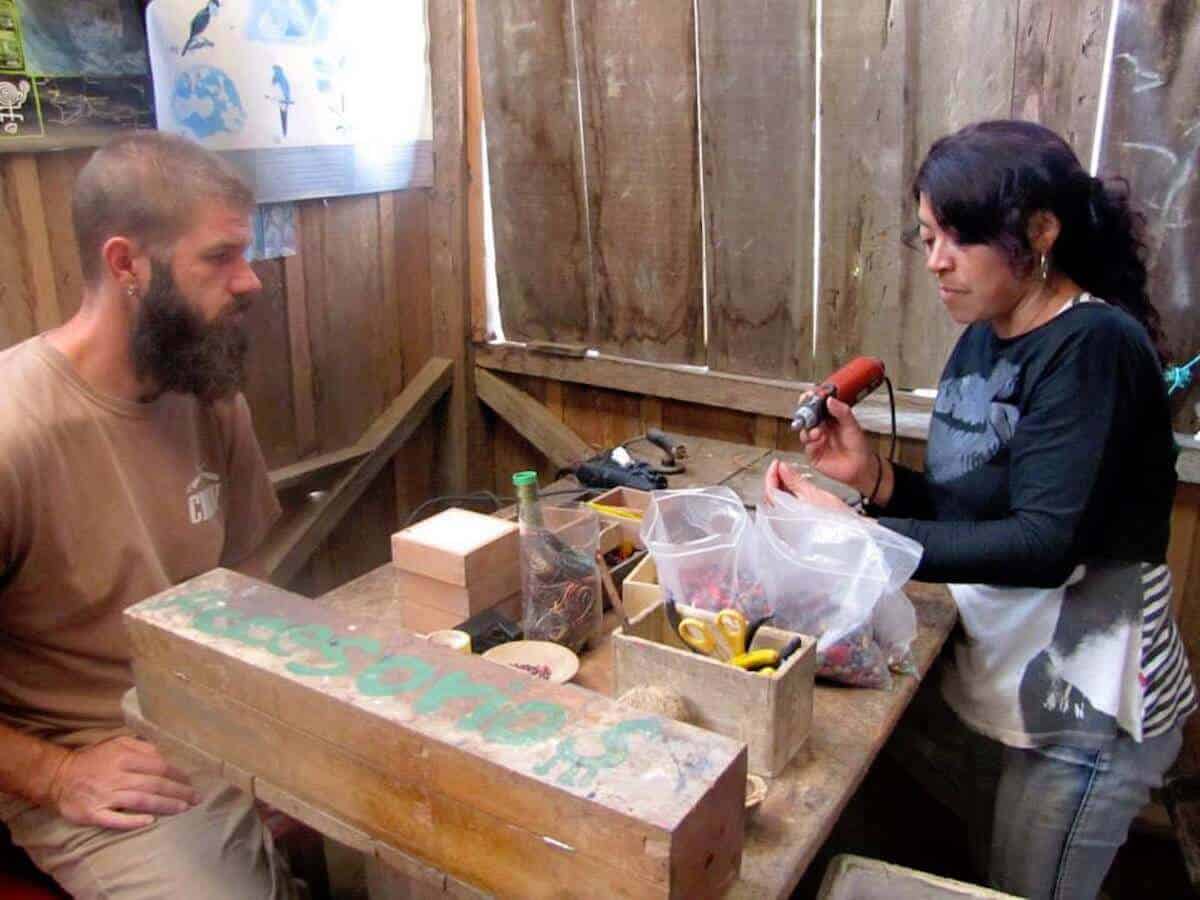
4. Support of/Participation in Volunteer Programs
With respectful cultural exchange comes empathy. Not only do we begin to understand that other cultures are 3-dimensional, but also we develop a more personal connection that begs us to honor these cultures with our time and support.
Ethical travel often engages us in working with others to better the world. While there is the more obvious version of participating in volunteer programs, it’s important to understand that volunteering isn’t the only (or necessarily the best) way we can help out.
The old adage of speaking with our dollars rings true when we choose our hotels and eco lodges, tour operators, and even the destinations themselves.
We can choose to support companies and organizations that are working towards more than profit, for the benefit of local people and communities. In many cases, these non-profit programs need customers more than they actually need volunteers.
When we travel this way, taking coffee tours with a fair trade farmers’ co-op or traveling with a tour operator that supports local schools, we help to create a world of conscious travel that’s better for the places we visit. We know it’s an honest experience, and honestly good for all parties involved.
READ MORE: The 20 Best Environmental Charities & Animal Charities
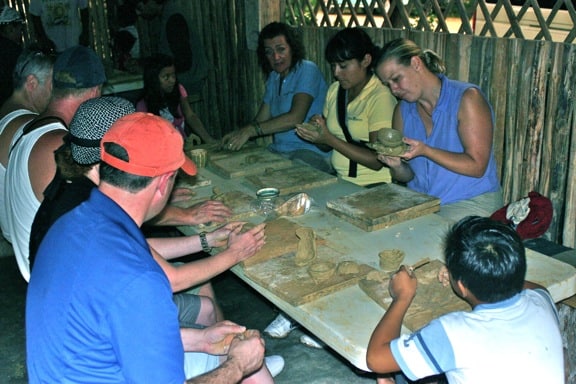
5. Deeper Connections with Local Communities
Ultimately, with all of these cultural connections taking place and sincere support being given, we find deeper connections with the local communities that are our hosts.
We aren’t just watching false performances and demanding that local people act like archaic versions of themselves for our tourist dollars. We aren’t just bogarting the best of their local beaches, lakes and rivers.
Responsible tourism intensifies our interactions with locals. It puts us in contact with people we wouldn’t see poolside at our hotels and resorts. It puts us in natural places where the world hasn’t been meticulously manicured to be artificially perfect.
Instead, we see beyond the sterilized façade of travel as trips to paradise and tourist traps offering stilted performances of culture as entertainment. The world is more nuanced than that, and seeing that nuance—as unsettling as it can be—means truly experiencing the culture of a place.
When travelers peak behind the curtain, we find a clearer picture of who we all are: people who struggle, triumph, falter, and fidget. It’s all in the name of a deeper connection to others. Because those connections are where we find the best of humanity.
READ MORE: Importance of Community-Based Tourism in Responsible Travel

6. Off the Beaten Path Discoveries
When our trips are primarily centered around all-inclusive resorts and over-touristed attractions, we cheat ourselves out of the little things that make places truly unique.
We miss the tucked-away café discovered due to a wrong turn, the friendly local who helps us find our way, the quiet surprise of an unexpected picturesque vista.
What responsible travel tends to do is take us out of the fold and into the fray. Most people associate responsible tourism with nature-based activities, such as camping in national parks, hiking up majestic mountains, or taking canoe trips through mangroves rich with wildlife.
We find ourselves on less trodden trails in beautiful forests. We follow local guides into small villages where they see old friends. When we get away from the hustle and bustle of the world’s major metropolises, we can find ourselves in all sorts of odd corners of the planet.
But this sustainable form of travel isn’t limited to nature! City tours with local guides explore some of the most beautiful neighborhoods and public parks urban settings have to offer.
We can explore a city without polluting the environment while gaining a fuller sense of its identity, immersing ourselves in its smells, sounds, and flavors as opposed to seeing it from behind a window.
READ MORE: 10 Off the Beaten Path Ecotourism Destinations to Discover
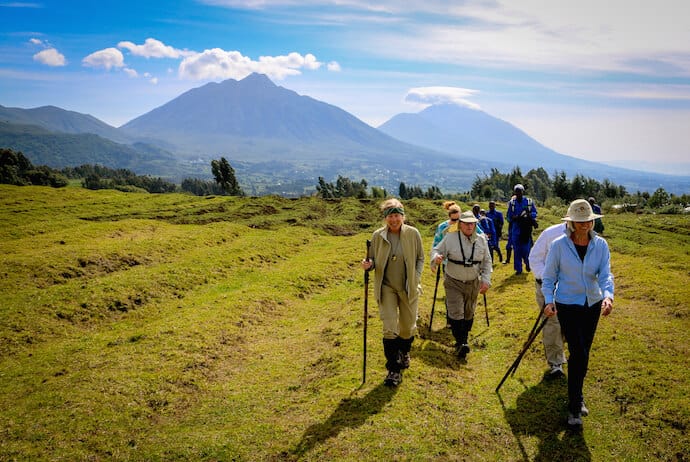
7. Avoiding Overtourism
Getting out of the rut many tourists unconsciously create by following trends helps responsible travelers avoid contributing to the overtourism that changes destinations for the worse.
Popularity may bring income to destinations like Iceland, Thailand, and Scotland’s Isle of Skye. But it can also alter them in ways that ruins what we loved about them in the first place, from overcrowding beautiful beaches to trampling once-unspoiled natural beauty.
Overtourism is an increasingly serious problem these days. First the location caters to tourists’ desires, offering the creature comforts of home, which often robs the place of its identity.
Then local businesses are supplanted by international conglomerates, and the local community sees less and less of the benefits of tourism and more and more of the detriment.
Gradually these unique destinations turn globalized cookie-cutter. They meet the whims of everyone with dollars to spend, and residents lose the heart of what made their community special.
Eventually the fickle winds of fashion lead the masses elsewhere, to the next trendy must-see hotspot. Unfortunately, overtourism is the classic “destroy what we love” scenario. It’s a formula we’d all be better served by not repeating.
READ MORE: How Mass Tourism is Destroying 30+ Destinations Travelers Love

On the opposite end of the spectrum, we have numerous organizations focused on alternative tourism forms, such as green travel, ethical travel, and transformative travel.
These companies strive to establish local livelihoods, protect local wildlife, and conserve local ecosystems. They offer responsible travel opportunities where it’s not all about the money, but where the dollars you spend do count for something.
Sustainability-minded companies involve themselves in the community, making for a more substantial relationship between tourists, locals, and foreign investors.
The collective group works towards keeping the local environment clean, the city safe, the infrastructure current, and the indigenous culture intact. These benefits of sustainable tourism far outweigh capital developments that send profits elsewhere.
After all, don’t we each try to support local businesses in our own towns and communities, and lobby to keep our parks tidy? Traveling sustainably is simply about realizing that the rest of the world values their local spaces and economy, too!
READ MORE: Community-Based Conservation in Maasai Mara, Kenya
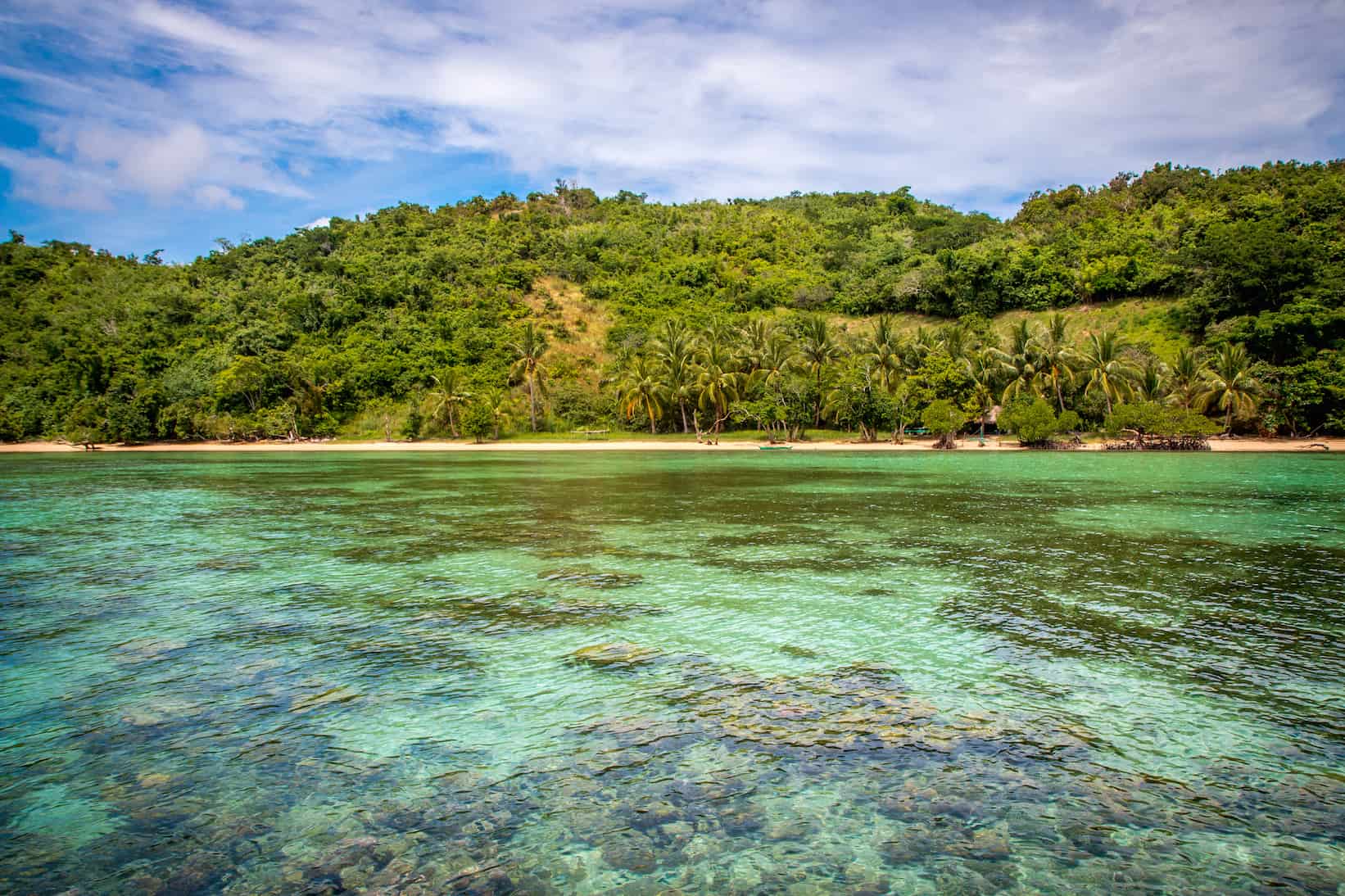
9. Environmental Tourism Benefits
Sustainable travel habits often lean into different forms of environmental tourism. As much as we like to visit ancient archaeological sites and historic cities, exploring the wilds of a new country is every bit as exciting.
Unfortunately the tourism industry has a terrible habit of running roughshod over the ecological jewels they celebrate. Coral reefs are diminishing due to pollution, coastal development, and human traffic. Mt. Everest is littered with human waste and congested with foot traffic as we destroy one of the world’s most epic natural wonders for the thrill of summiting it at the lowest price possible.
Our tourism dollars could (and should) be going to the conservation of these places, not their destruction. This is why it’s imperative to choose responsible companies when visiting them.
The benefit of environmental tourism is that responsible tour operators often work to conserve and protect the spaces they promote. From Gamewatchers Safaris/Porini Camps in Kenya to Beast Wildlife Adventures/K’uk Tours in Guatemala, we here at GGT have been lucky to work with some exceptional examples in the last year.
Not only do they offer incredible travel experiences with a minimum footprint, but they consistently reinvest in these destinations. Money matters, but so do the mountains and plains.
READ MORE: Wilderness Society’s Alan Rowsome on Conservation Economics

10. Saving the Environment Helps Everyone
As more people begin to understand climate change and the importance of reducing our carbon footprint, it’s imperative that we realize that saving the environment has a value far beyond merely maintaining pristine places to visit.
Responsible tourism puts our focus (and the focus of companies that want to attract us) on actively taking steps to conserve our planet.
As a result, we have tour operators devoted to protecting wildlife, resorts and eco-lodges striving to build and operate sustainably, and hotels and restaurants growing their own (or seeking locally grown) organic food.
The growing demand for these types of products and services has changed the traveling landscape. And the rise in responsible tourism has, in turn, changed the local perspective.
Though less-developed countries like Belize and Chile have scrambled to catch up with our first world excesses, ecotourism has given them a more ecologically reverential path to economic success. In the end, we’re all going to benefit from a planet with a more stabilized climate.
READ MORE: 10 Natural Travel Toiletries You Can Make at Home

11. Truly Transformative Travel
International travel has a reputation for being life-changing, which is absolutely true. But these deeply personal revelations only occur when our adventures expose us to something new.
When we travel responsibly, we learn more about a culture and spend time with the local people. We see natural wonders and wildlife that captivate us. We become more in tune with what stirs our emotions and challenges our ways of thinking. These experiences can be truly transformative.
It’s perfectly fine to check man-made landmarks like the Eiffel Tower or Big Ben off your bucket list. But in our experience, it rarely leaves you walking away feeling like a new person.
True transformation is found somewhere deeper, in more personal places, in unexpected conversations and overwhelming vistas. It’s in spending time with the Maasai people of Tanzania, watching a family of bears in Alaska, or exploring the jaw-dropping fjords of Norway.
For a truly transformative experience, we have to challenge ourselves on some level. Responsible travel puts us in the right position to have these sorts of meaningful adventures.
READ MORE: My Life-Changing Experience in South Africa
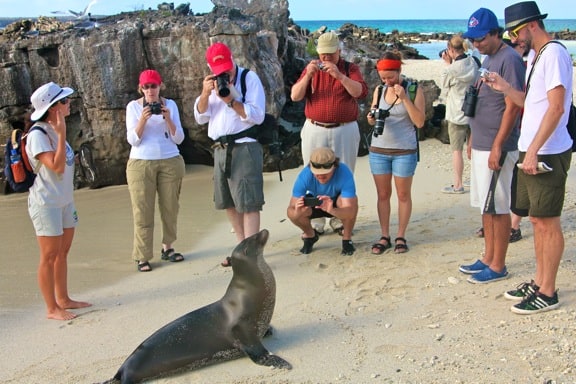
12. Connecting With Other Eco Travelers
Ecotourism feels different from other types of travel. Fellow travelers are generally like-minded and in pursuit of similar experiences, with an emphasis on nature, wildlife, and indigenous culture. Meeting interesting new friends along the way is just one of many fringe benefits.
There is an intrinsic bond that occurs when you’re watching a Sea Turtle lay eggs on a beach in Dominica, dancing in the streets with New Orleans’ Mardi Gras Indians, or swimming with Whale Sharks in Mexico.
Strangers become fast friends, and these new friends often turn out to be a wealth of knowledge and experience. Responsible travelers tend to know their stuff. They go out and do, mingling with people and exploring the planet with a vested interest in their experiences.
Many times in my experience, it has been fellow travelers that led us to the next enthralling destination, invited us to a can’t-miss restaurant, or introduced us to a helpful local contact.
Ecotourism destinations tend to be good for people meeting people. And the connections made as a result are often full of good advice and insider travel tips.
READ MORE: 60 Going Green Tips You Can Use Every Day

13. Spreading the Word on Conscientious Tourism
While we’re making these new friends, we also have the opportunity to share our own experiences. We get the chance to spread the good word about the cool places we’ve been, the off-the-beaten-track haunts we’ve discovered, and the wonderful people we’ve met along the way.
Connecting with other responsible travelers isn’t just about getting good advice, but also about sharing it. This is how a new culture of travel is organically created.
We can promote the responsible companies we’ve dealt with, and share info about the interesting tours we’ve taken.
We can recount weird foods and delicious dishes we’ve tasted, and share tips on our favorite restaurants. We can lead other curious travelers down the conscientious pathways that we’ve unearthed during our own trips.
In sharing information about our favorite places around the world, we all become wiser as to what is happening in up-and-coming destinations we’ve never visited. Even in the age of the Internet, word-of-mouth is still one of the best ways to learn about cool stuff!
READ MORE: Downtown Asheville Restaurants (A Great Green Restaurant Scene)
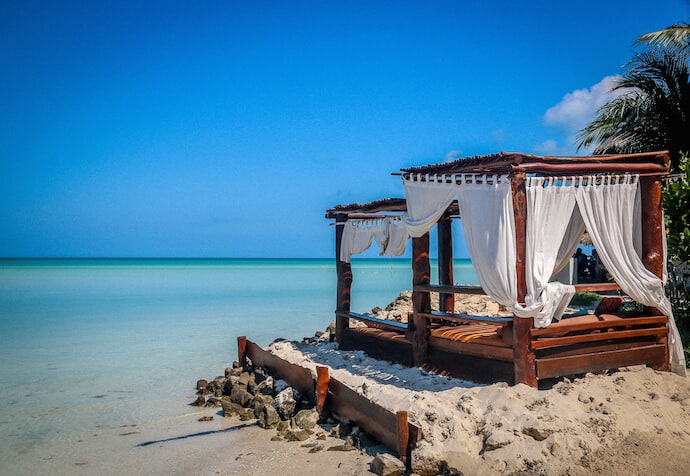
14. A Network of Responsible Travel
The ecotourism industry is a tightly-knit network of like-minded businesses. In general, the green hotels in a given city know about each other, but they also know about other eco-friendly initiatives throughout the region.
Another benefit of responsible tourism is that the companies moving towards sustainability often work together in this pursuit.
Their connections to one another makes finding an eco-friendly place to stay, eat, or explore in the next destination that much easier. It makes finding a good farm-to-table restaurant much more feasible. It offers up unique experiences that exceed the standard tours offered to other travelers.
With each new connection you make within the network of responsible travel, more and more possibilities open up, because good intentions seem to congregate.
Also, the connections you’ll find in this network are much more likely to include locally-run places. Because those who are involved in the responsible tourism industry know that success on the local level is vital to continued success as a popular destination.
READ MORE: What is Ecotourism? (History/Principles of Responsible Travel)

15. Investment in Ethical Tourism
Much like ethical shopping, ethical travel is what we’d all probably prefer, but it sometimes takes a little extra effort and money. Sustainable tourism development really relies on people buying into it as a real thing.
While it’s easy to spend less and get there faster, responsible travel sometimes asks more of us. With the rise of inexpensive air travel and cruises, the travel industry has been reckless with its environmental impact and exploitation of people that get wrapped up in cheap holiday packages.
We can all be forgiven a little for our travel sins. But once we know better, we should strive to do better. The damage from industrial globalization and dog-eat-dog capitalism has been a toxic pill for the entire planet to swallow.
Responsible travel is all about investing in a better way of doing things. It’s about being conscious of who gets our money, and what they’re going to do with it. And it takes a lot of tourists at a grassroots level to make the wholesale change to ethical tourism we’d like to see.
One important note: Though we believe this approach is better for everyone involved, responsible tourism isn’t about judging the way others choose to travel.
What we’re ultimately after is an authentic appreciation of exploring new places sustainably. In the end, responsible tourism delivers experiences that remain with us for years to come, and these transformative memories help us get the most out of every trip we take. –Jonathon Engels


